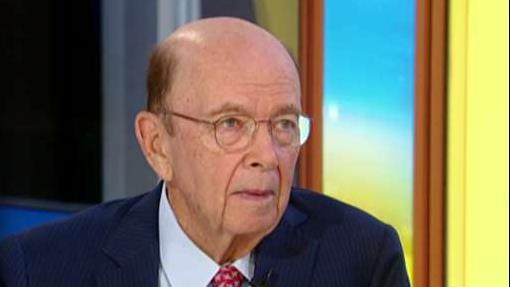Wilbur Ross: American workers are winning
There is a significant body of evidence showing that the U.S. economy is strong. The U.S. economy has added millions of jobs, and even long-neglected sectors like manufacturing are having a resurgence.
Among the continuous good economic news, wage growth for America’s workers has taken center stage. For the first time since 2009, year over year nominal hourly wage growth met or surpassed 3 percent under the Trump Administration. Wages have continued to do so for 12 months, even as inflation stayed below the Federal Reserve’s target 2.0 percent. Not only are wages growing but the slow growth in consumer prices means that American workers’ dollars are going farther. It is no wonder consumer confidence surged in July as consumers became more optimistic about their current situation and future economic prospects.
Buried beneath all of this great news is the recovery of another important measure of worker health from the lows of the Obama Administration.
On July 26, 2019, the U.S. Department of Commerce released an estimate of second-quarter GDP and updates to GDP since 2014. The U.S. grew a better than expected 2.1 percent annual rate in Q2 and annual revisions showed higher levels of real disposable income and consumer spending in the first two years of the Trump Administration.
In addition to all of this great news, the Department released updated data on the portion of corporate production costs that goes to employee compensation. In other words, this complex data outlines how much of the cost of production by companies go to employees in the form of wages and salaries and other employee benefits. The higher the percentage that goes to compensation, the more employees join in the benefits of their employer’s success. When the ratio is higher, that means that as companies produce more, their workers make more. When the ratio is low, workers are more separated from the results of their work.
Luckily for America’s workers, the Trump Administration has strengthened this important metric. Under the Obama Administration, compensation as a share of production cost hit the lowest level on record, bottoming out in the third quarter of 2014. As compensation fell as a share of corporate production costs, corporate profits’ continued to rise and hit a post-recession maximum in the third and fourth quarters of 2014, the same time as worker compensation as a share of costs hit a record low.

U.S. Secretary of Commerce Wilbur Ross testifies to the House Appropriations Commerce, Justice, Science, and Related Agencies Subcommittee on the Commerce Department's FY2019 budget request on Capitol Hill in Washington, U.S., March 20, 2018. REUTERS (Reuters)
Since then, worker compensation as a share of production costs has rebounded, hitting the highest level in the first quarter of 2019 since 2009. America’s workers are enjoying a larger share of their employers’ success, and benefitting more from the work they do and the goods they produce. This Administration’s policies have created a historically strong job market, which has been fundamental in the growth of compensation share since the election. Ensuring that American workers continue to receive their fair share will continue to be a top priority.
Contrary to misleading arguments that the President’s policies are not benefitting workers, this data shows that it is the average American workers who are gaining from the country’s broader economic success. Unlike during the Obama Administration, where anti-business policies squeezed corporations and left American workers out of the economic recovery, U.S. workers are now enjoying the fruits of their labor at the highest levels in 10 years.
CLICK HERE TO READ MORE ON FOX BUSINESS
Tax cuts, deregulation, and an Administration dedicated to growing business have allowed the U.S. economy to flourish. The resulting surge in job creation and record low unemployment has put the American worker in the driver’s seat. Because of President Trump’s policies, American companies and their workers are succeeding together.
Wilbur Ross, U.S. Secretary of Commerce




















